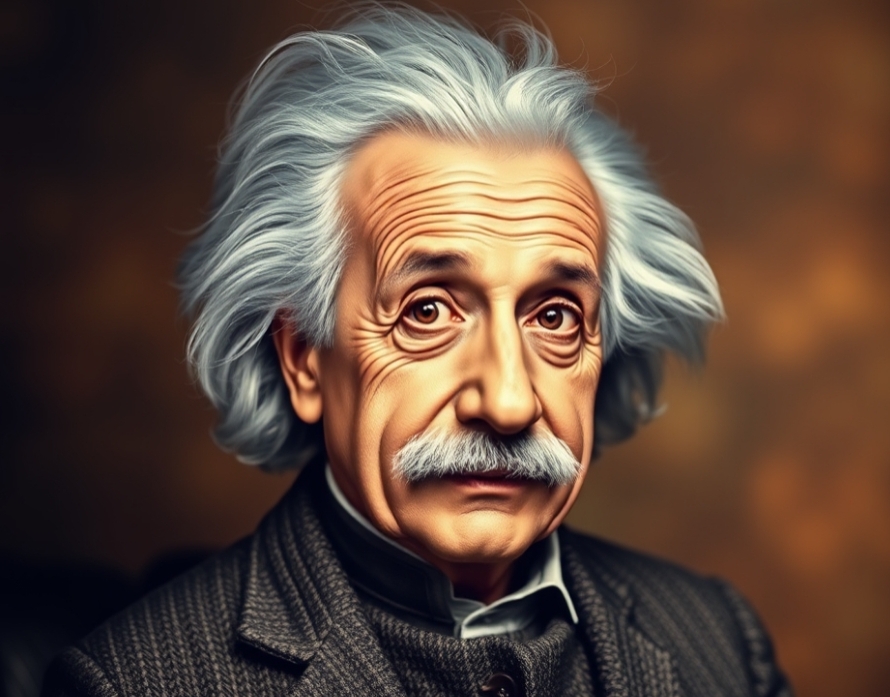Table of Contents
Introduction
Albert Einstein, one of the most influential scientists of the 20th century, revolutionized our understanding of the universe through his groundbreaking theories and discoveries. His name is synonymous with genius, yet his journey was marked by challenges and triumphs that shaped not only his life but also the course of modern physics. This article delves into Einstein’s life, his major contributions to science, and his enduring legacy.

Early Life and Education
Childhood in Ulm
Albert Einstein was born on March 14, 1879, in Ulm, in the Kingdom of Württemberg in the German Empire. His family moved to Munich shortly after his birth, where his father, Hermann Einstein, and uncle ran an electrical engineering business. From a young age, Einstein showed an affinity for mathematics and physics, often pondering complex problems.
Academic Challenges
Despite his early brilliance, Einstein faced challenges in the traditional education system. He struggled with the rigid structure of German schools, leading to conflicts with teachers. However, his passion for learning remained undeterred, and he pursued self-study in physics and mathematics.
Higher Education
In 1896, Einstein enrolled at the Polytechnic Institute in Zurich, Switzerland. Here, he flourished academically, befriending fellow students who would later become influential figures in science. After graduating in 1900, he faced difficulty finding a teaching position and took a job at the Swiss Patent Office, where he continued to develop his theories in his spare time.
Major Contributions to Physics
The Special Theory of Relativity
In 1905, often referred to as Einstein’s “miracle year,” he published four ground breaking papers, including one on the special theory of relativity. This theory introduced the famous equation (E = mc^2), establishing the relationship between mass and energy. It fundamentally changed the way we understand space and time, proposing that they are interwoven in a single continuum known as spacetime.
The General Theory of Relativity
In 1915, Einstein expanded his work with the general theory of relativity, which provided a new framework for understanding gravity. He proposed that massive objects like the Earth warp the fabric of spacetime around them, causing other objects to follow curved paths. This revolutionary idea was confirmed in 1919 during a solar eclipse, when observations showed that light from stars was bent around the sun, validating Einstein’s predictions.
Contributions to Quantum Mechanics
Einstein’s contributions were not limited to relativity. He also made significant advancements in quantum theory, particularly with his explanation of the photoelectric effect, for which he received the Nobel Prize in Physics in 1921. His work laid the foundation for modern quantum mechanics, although he famously had reservations about certain interpretations of the theory, famously stating, “God does not play dice with the universe.”
Einstein’s Legacy
Influence on Modern Physics
Einstein’s theories have had a profound impact on various fields, including cosmology, astrophysics, and theoretical physics. His work paved the way for technologies such as GPS and has influenced our understanding of black holes, gravitational waves, and the expanding universe.
Cultural Icon
Beyond his scientific achievements, Einstein became a cultural icon. His distinctive appearance, complete with unkempt hair and a thoughtful expression, made him a recognizable figure worldwide. He used his platform to advocate for civil rights, pacifism, and education, making him a symbol of humanitarian values.
Continued Relevance
Today, Einstein’s theories continue to be tested and expanded upon. Researchers are still uncovering the implications of his work, and his insights remain crucial to our quest for understanding the universe. His name is often invoked in discussions of intelligence and creativity, exemplifying the potential of human thought.
Albert Einstein’s journey from a curious child in Germany to a global icon of science is a testament to the power of intellectual curiosity and perseverance. His groundbreaking contributions have reshaped our understanding of the universe and continue to inspire future generations of scientists and thinkers. As we explore the cosmos and confront new scientific challenges, Einstein’s legacy remains a guiding light in the pursuit of knowledge.



